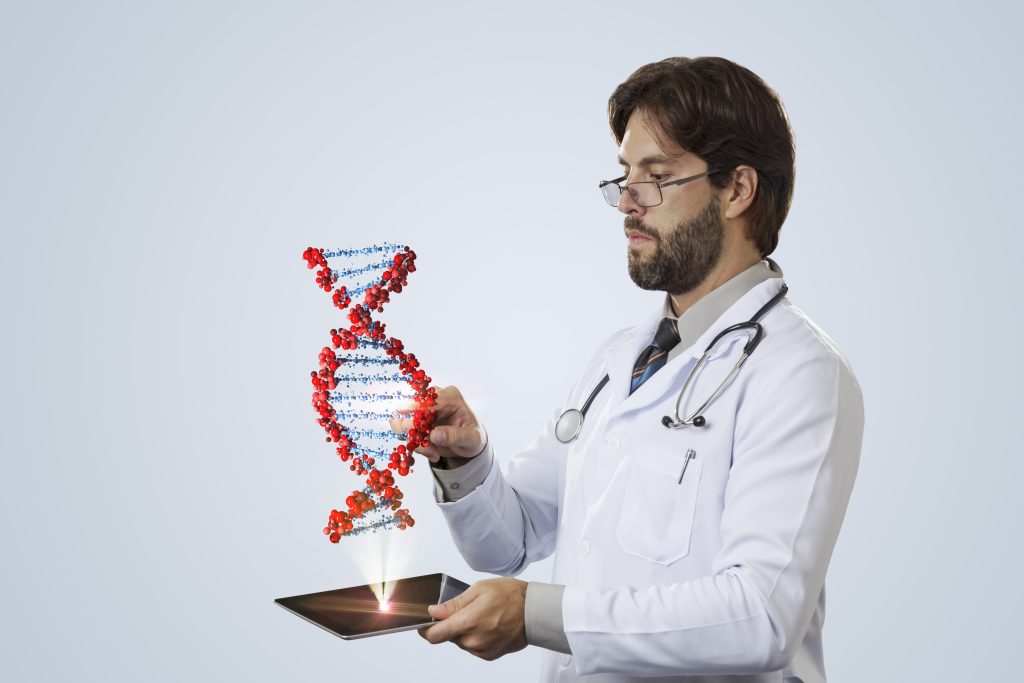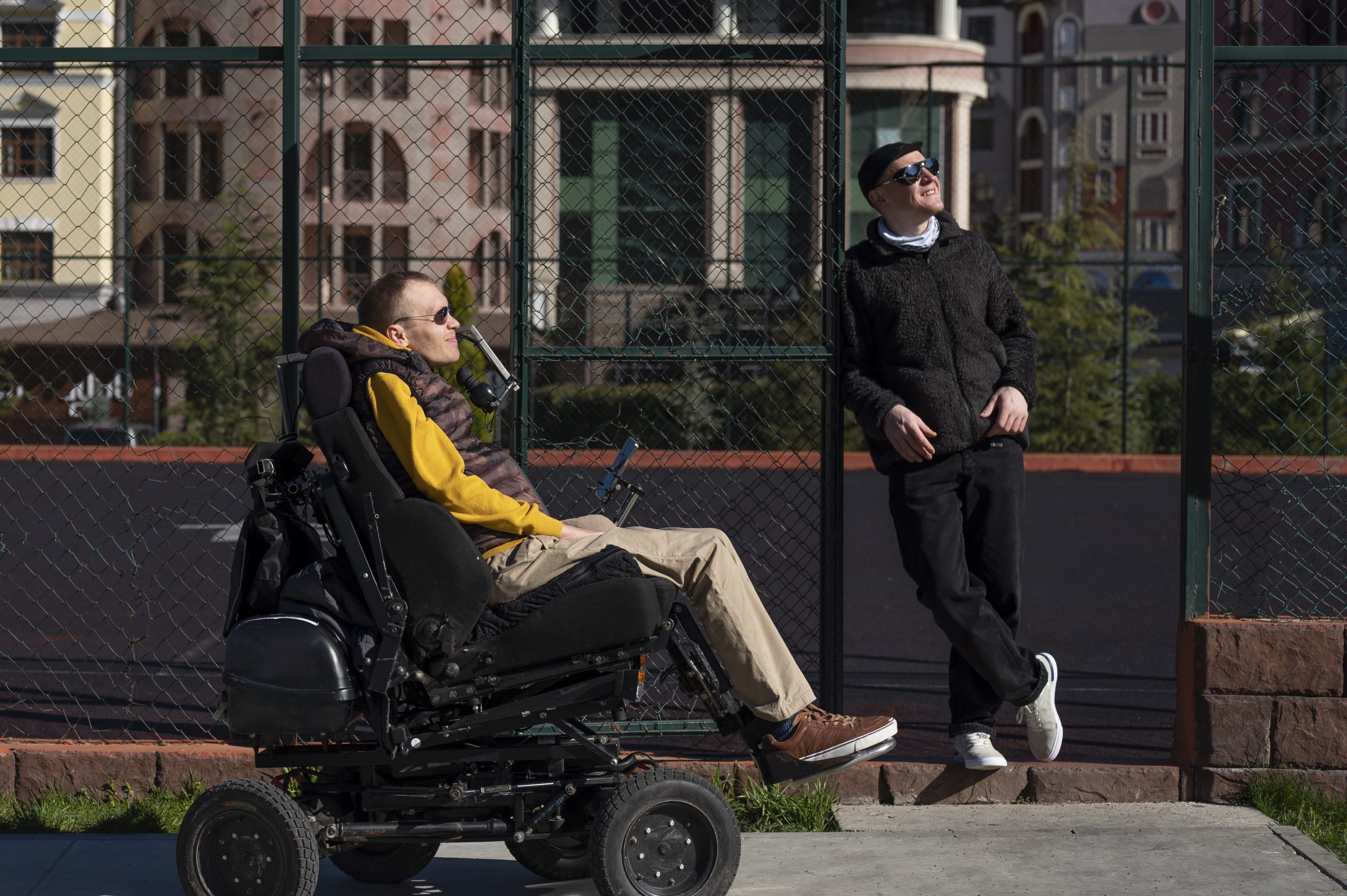
What is Interstitial Cystitis?
April 25, 2025
How to Manage Weight Loss After GLPs
April 30, 2025What is Huntington's Disease?

HD stands as a genetic degenerative brain illness which produces progressive decline of mental abilities together with movement disabilities and psychiatric signs. A mutation in the HTT gene leads to this genetic condition because it controls huntingtin protein production. The disease process produces intensive physical and mental ability deterioration which results in major disability and requires complete care from caregivers.
The Smart Choice Clinic provides complete information about Huntington’s disease and therapy strategies.
Causes and Genetic Basis
An individual develops Huntington's disease when they inherit only one copy of the genetic defect through familial inheritance in an autosomal dominant manner. Each child of a parent who carries the mutated HTT gene has a fifty percent probability to receive it as an inheritance.
- Huntington disease develops because of too many CAG repeats within the HTT gene.
- HD emerges when CAG repeats exceed 36 normal instances among individuals but patients with this condition typically accumulate 40 repetitions or more in their genetic code.
- The greater the number of CAG repeats, the earlier the onset of symptoms.
Symptoms of Huntington’s Disease
The disability caused by Huntington’s disease mostly affects three different parts of the body: the nervous system, mental processes and psychological health.
Motor Symptoms
-
- Chorea – leads to uncontrollable jerks which occur throughout the facial muscles and impact both arm and leg movements along with those in the trunk area.
- Dystonia – muscle rigidity and abnormal postures.
- Bradykinesia – slowness of movement.
- Difficulties with coordination and balance.
- Speech and swallowing difficulties.

Cognitive Symptoms
- The condition causes problems with executive management which makes task planning and organization difficult.
- Decreased cognitive flexibility.
- Memory lapses and difficulty learning new information.
- People with this condition demonstrate reduced ability to think clearly along with problems in decision-making.
Psychiatric Symptoms
- Depression and mood swings.
- Anxiety and reclusive nature.
- Obsessive or compulsive behavior.
- Restlessness and aggression.
- Hallucination or delusion at the final stage.
Stages of Huntington’s Disease

-
Huntington's disease may be broadly categorized into three main stages:
Early Stage
- Mild, uncontrollable movement.
- Subtle changes in mood and cognition.
- Coordination problems and mild memory problems.
Middle stage
- Worsening motor dysfunction (increased involuntary movement, imbalance).
- Difficulty swallowing and slurred speech.
- Cognitively impaired, worse than in the early stage.
- Increased psychiatric disturbances (depression, anxiety, and irritability).
Late stage
- Severe physical disability with loss of ability to walk or talk.
- Profound cognitive impairment.
- Total dependence on caregive
Diagnosis of Huntington's Disease
The diagnosis of Huntington's disease is based on:
Genetic testing – A blood test to identify the expanded CAG repeat in the HTT gene.
Neurological examination – Assessment of motor symptoms and reflexes.
Cognitive and psychiatric assessment – To assess the changes in thinking and emotional stability.
Brain imaging (MRI or CT scans) – To determine structural brain changes associated with the disease.
Treatment and Management
A cure for Huntington's disease is not available, but symptom treatment can help manage symptoms and enhance the quality of life.
Medications
- Tetrabenazine and deutetrabenazine – reduce involuntary movements (chorea).
- Antipsychotic drugs (risperidone, olanzapine) – manage psychiatric symptoms, such as agitation and hallucinations.
- Antidepressants (SSRIs, tricyclics) – assist in alleviating depression and anxiety.
- Muscle relaxants (baclofen, diazepam) – reduce muscle rigidity and spasms.
Physical and Occupational Therapy
- Helps improve balance and mobility.
- Provides assistive devices to aid daily activities.
- Encourages speech therapy for communication and swallowing difficulties.

-
Lifestyle and Supportive Care
- Nutritional support: Caloric-rich diet that helps the patient maintain their weight, since patients with HD suffer from considerable weight loss.
- Psychotherapy and Counseling: Both the patients and the caregivers require emotional support and coping mechanisms.
- Support groups: that offer networking where patients, as well as their families, can share information and resources.
Research and Future Treatments
Scientific research is actively working on discovering new Huntington's disease treatment, among them being:
- Gene therapy: This includes the CRISPR technologies for correcting the mutation in HTT.
- RNA-based Therapies: Investigational drugs such as tominersen bind to and decrease the levels of mutant huntingtin protein.
- Stem Cell Therapy: Researchers are working on strategies for neuronal replacement.
- Neuroprotective Agents: Drugs to slow the course of the disease.
Living with Huntington's
The management of Huntington's requires a multidisciplinary approach.Families must plan for the long-term care of their patients.
- Legal and financial planning about future health needs.
- Home modifications that improve accessibility and safety
- Palliative care in advanced stages to improve comfort and dignity.
Conclusion
Huntington's is a fatal inherited disorder that progresses with damage of movement, cognition, and psychiatric disorders.Although there is no cure available today, the hope for the future is provided by the ongoing research. Early diagnosis and management of symptoms through medications, therapy, and lifestyle changes can improve the quality of life. Families and caregivers play an important role in supporting individuals with Huntington's disease throughout its progression.
For expert advice and treatment options, visit Smart Choice Clinic.



